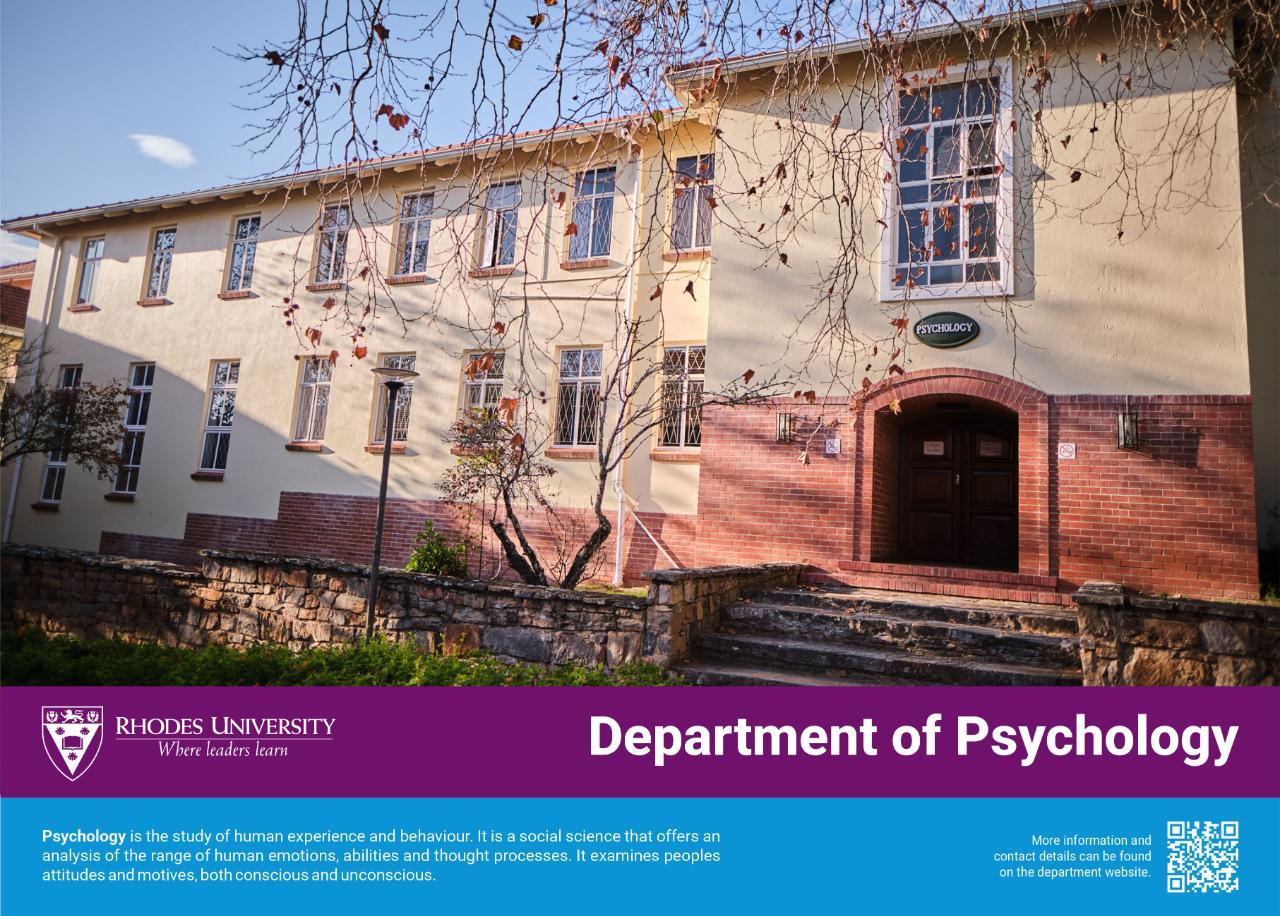
By: Khanya Tyhalwa
To connect psychological theory with real-world practice, final-year Psychology students at Rhodes University recently partnered with the South African National Council on Alcoholism (SANCA) in the Central Eastern Cape to create Instagram-based awareness campaigns focused on substance abuse prevention.
This service-learning project, part of the Community Psychology module, challenged students to apply their knowledge beyond the classroom and into public engagement. Drawing on theories of empowerment, prevention, and social change, students used Instagram to reach youth audiences, raise awareness, and challenge harmful norms around alcohol use.
According to the course lecturer, Dr Liezille Jacobs, the assignment meant meaningfully merging academic knowledge with public health communication. “Instagram allows students to apply psychology in a space that is immediate, accessible, and relevant to their peers,” she explained. “They’re not just learning about community work, they’re doing it.”
The campaigns tackled a range of topics, including binge drinking, drug abuse, peer pressure, and mental health. Students developed original content through infographics, reels, anonymous polls, and educational posts. SANCA, a long-standing department partner, will continue using select campaign content in its outreach programmes. “SANCA has several health promotion campaigns that align with our service-learning goals,” said Dr Jacobs. “They benefit from the content students create and, in turn, help give students a clearer sense of real-world impact.” The collaboration ensured the campaigns were educational and directly linked to ongoing community outreach efforts.
One of the standout campaigns, RU Over the Influence, focused on creating a safe space for students to reflect on their relationship with alcohol. Kamohelo Fani, the social media curator behind the project, shared that their personal experience inspired the campaign. “What started as social drinking eventually became normalised. I realised I wasn’t alone, many students are quietly struggling with alcohol dependency while appearing to function.”
The campaign used anonymous submissions and direct messages to open conversations. “Students would message saying they didn’t think they had a problem because they were still performing well academically,” said Fani. “But they were emotionally overwhelmed. Our goal was to offer support and show that help is available.”
Another campaign, RUAWARE, used Instagram tools like polls and confession links to engage youth and test awareness levels around alcohol abuse. The group behind the project noted that many young people did not fully understand the psychological effects of alcohol use. “We wanted to start with education and empower our audience to make informed decisions,” they shared.
A third group, responsible for the Rise Above Alcohol campaign, focused on student life in Makhanda. Recognising that limited recreational options often lead to alcohol becoming a default form of entertainment, the campaign encouraged students to find alternative ways to socialise. “We promoted activities like movie nights, walks, and joining societies,” the group said. “There is fun without alcohol; we just have to create it.”
Beyond awareness, students also reflected on how their campaigns influenced their thinking. Many described the pressure of creating public-facing work and the impact of working with a real-world partner like SANCA. “This wasn’t just about getting a grade,” one student said. “It was about making a difference and speaking to our community.”
According to Dr Jacobs, the assignment reinforces key principles of community psychology: engagement, reflection, and action. “Students developed communication skills, ethical awareness, and the ability to create change through collaboration,” she said.
Through this assignment, students moved beyond theoretical understanding, using creativity and compassion to engage others, challenge stigma, and promote wellness. As one student reflected, “It’s not just about alcohol. It’s about finding new ways to cope, connect, and heal together.”
Sharing student-led campaigns across wider platforms is vital in raising awareness, encouraging informed conversations, and increasing access to support. When health promotion efforts extend beyond academic spaces, they become more visible, relatable, and impactful to help foster a campus culture where knowledge-sharing and help-seeking are normalised.
